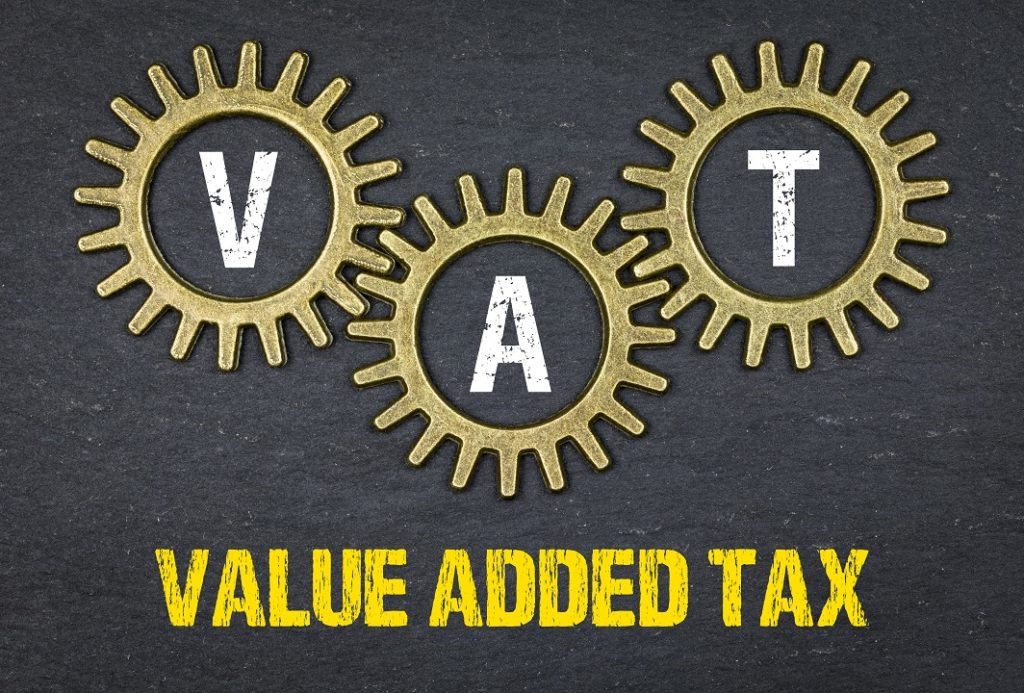FIRS Circular on Value Added Tax (VAT)
The Finance Act (“FA”) 2019 amended some provisions of the Value Added Tax Act (“VATA”) Cap V1, LFN 2004 (as amended). The Federal Inland Revenue Service (“FIRS”) Circular is issued as guidance to all stakeholders and FIRS position on
appropriate implementation of relevant provisions of the VATA.
In this tax alert, we examine relevant matters clarified in the FIRS circular, which are listed below:
- Definition of goods and services;
- Transition to the new VAT rate,
- VAT registration and deregistration;
- Self-accounting for VAT;
- Registration by non-residents;
- Introduction of VAT threshold;
- Business reorganisation;
- Exported service;
- Penalty regime; and
- Status of the information circular
DEFINITION OF GOODS AND SERVICES
The circular maintained that apart from tangibles goods, VAT now applies on the supply of intangible goods in Nigeria such as the supply of rights in mineral resources, copyrights and trademarks. In line with the
through market based on the internet and World Wide Web.
For services, VAT will apply if the service is performed to persons in Nigeria or the service is performed in Nigeria irrespective of the location of the provider or medium of delivery.
The FIRS provided a note that services rendered to and consumed by a Nigerian person while outside Nigeria would not be liable to VAT.
TAC’s Opinion on Definition of Goods and Services
Immovable goods are exempted from value added tax though right in property which is transferable to another person is liable to VAT, however, the transfer of interest in land is specifically excluded from the definition of a taxable good for VAT purposes based on the provision of FA. It is not too clear if the exemption of interest in land covers items attached to land. As intangibles are now considered as “goods” under the FA, it is now possible in principle to claim input VAT where the other conditions for input VAT claim are met.
TRANSITION TO THE NEW VAT RATE
The FIRS circular state that the new VAT rate becomes effective from the 1st of February 2020. Consequently, all transactions carried out from the 1st of February shall reflect the new rate of 7.5%, the FIRS mentions that:
• A service is supplied when it is performed or an agreed milestone is reached
• Goods are supplied upon delivery or transfer of risk, whichever occurs first.
Based on the above, any taxable supply made from 1 Feb 2020 would be subject to VAT at 7.5%. Where it is not practicable to determine the time of supply, FIRS may rely on the date contained in invoices, bills, debit notes, good received notes, journal entries or waybills as the date of supply.
TAC’s Opinion on Transition to the New VAT Rate.
The FIRS interpretation is in line with Section 13A of the VAT Act on tax invoices which specifies that a tax invoice should be issued on supply. This means that an invoice can be issued at any time when the supply
occurs. For services, this may be at the start, when the service is being provided or at the end. The ‘time of supply’ is also a legal requirement of tax invoices, and this may not necessarily be the same as the invoice date. It is expected that the FIRS will implement this provision in a manner to prevent taxpayers from exploiting any timing difference between the time of supply and the date an invoice is issued. The FIRS clarification of application of new VAT rate to contract signed before February 1, 2020 whose supplies are made after February 1, 2020, contract FIRS previous interpretation circular.
VAT REGISTRATION AND DEREGISTRATION
The amended VAT requires businesses to register for VAT upon commencement of business operation. The tax law also mandates businesses to notify the FIRS within 90 days of cessation, when ceasing a trade. In addition, the circular states that supplies made post-cessation will be considered as supplied immediately before ceasing.
The penalties for failure to register for VAT have been increased from N10,000 to N50,000 for the first month and from N5,000 to N25,000 for the subsequent month in which the failure
continue, and new penalties have been introduced for failure to notify FIRS of cessation.
TAC’s Opinion on VAT Registration and Deregistration
The FA exempts organisations with less than N25m turnover in a calendar year from VAT registration. The circular however, requires that such entities continue to charge VAT and file returns
if they attained N25m prior to the amendment. The circular also provides for voluntary registration. However, the voluntary registration and VAT returns filing do not have any legal support in the FA.
SELF ACCOUNTING FOR VAT
The circular clarifies that a taxable person should self-charge and remit VAT on transactions with:
• A supplier who is exempt from charging VAT because of the N25m threshold;
• A taxable person that fails to charge VAT; and
• A non-resident company without a presence in Nigeria.
A taxable person that self-charges VAT should remit the VAT using a prescribed tax form (VAT Form 006) and maintain a schedule of such transactions.
TAC’s Opinion on Self Accounting for VAT
Currently, many companies use the regular VAT Form 002 for all VAT returns. It will be better if the vat form 006 can be consolidated with 002 to reduce complication of compliance burden on the taxpayer.
REGISTRATION BY NON-RESIDENTS
The FIRS provided a note that services rendered to and consumed by a Nigerian person while outside Nigeria would not be liable to VAT. This clarifies the ambiguity as transactions like foreign hotel bills and training where the recipients were physically abroad should not be taxable services in Nigeria.
As intangibles are now considered “goods” under the FA, it is possible in principle to claim input VAT where the other conditions for input VAT claim are met.
The circular highlights that a Non-Resident Company (NRC) that “makes taxable supplies” to a Nigerian resident should:
• Register for the tax with the FIRS using the address of the person to whom it is making a supply; and
• Include VAT on its invoice.
NRCs that have a fixed base in Nigeria should register using the address of the fixed base and comply with charging, filing, payment and other requirements as if it were a Nigerian company.
TAC’s Opinion on Registration by Non- Residents
The VATA requires an NRC that “carries on business” in Nigeria to register for VAT. In our view, “carrying on business” requires some level of presence in Nigeria. Requesting NRCs that make any taxable supply to Nigeria to register for VAT is impracticable and can be
an unnecessary administrative and compliance burden for the FIRS and the affected NRCs.
INTRODUCTION OF VAT THRESHOLD
The FA exempts companies that make taxable supplies of less than N25m from charging, collecting, remitting and filing monthly VAT return to the FIRS. Such businesses are also exempt from penalties for non-registration.
A taxable person may determine if the threshold has been met as follows:
a) A business that made taxable supplies of N25m or above prior to 1 February 2020 should continue to account for VAT, even if taxable supplies in the current year are below N25m;
b) A business that made taxable supplies less than N25m prior to 1 February 2020, but makes or expects to attain the threshold in the current year should account for VAT in the month it meets or expects to meet the threshold; and
c) A business may volunteer to account for VAT (subject to notifying the FIRS), even though it does not meet the VAT threshold.
“Taxable supplies” for determining the N25m threshold is defined to include all supplies for a consideration irrespective of whether they are VAT exempt. However, this excludes the taxable supply of the capital assets and sale of the whole or part of the business.
BUSINESS RE-ORGANIZATION
The FA 2019 introduced a VAT exemption on transfer of assets in a business reorganisation between related parties, subject to the following conditions:
a) The companies must justify to the FIRS that they have been related parties for at least one year before the transaction;
b) The transferred assets should not be disposed of at least a year after the transaction. Where the assets are sold within this period, any concessions granted will be withdrawn by the FIRS, and penalties and interest will be charged from the transaction date.
TAC’s Opinion on Business Re- Organization
The reorganisation concessionary relief available to groups now clearly covers VAT and Capital Gains Tax (CGT) in addition to Companies Income Tax (CIT). One of the anti-abuse conditions is that the transferred assets should not be disposed of at least a year after the transaction. However, it is not clear if this refers to all the assets, or whether the concession will be withdrawn if one or some of the assets are disposed off.
The condition also refers to a sale of assets, which means it would not be adversely affected by a sale of shares of the acquiring company within the 365 days.
EXPORTED SERVICES
The FA 2019 amended the definition of “exported services” in the VATA to mean: “a service rendered within or outside Nigeria by a person resident in
Nigeria, to a non-resident outside Nigeria. Provided that a service supplied to the fixed base or permanent
establishment of a non-resident person shall not qualify as exported services” The FIRS circular highlights that for a service to qualify as an exported service:
• it must be provided by a Nigerian resident to a non resident; and
• the non-resident person must be outside of Nigeria when consuming the service.
The Circular also clarifies that the following do not qualify as exported services:
a) Where a non-resident person is in Nigeria or consumes the service while in Nigeria;
b) Where a non-resident provides a service through its fixed base in Nigeria;
c) Where a Nigerian resident provides service to the fixed base of a non resident in Nigeria; and
d) Where a service is provided to a consumer who is in Nigeria, on behalf of a non-resident person
TAC’s Opinion on Exported Services
The FIRS has provided clarity on how it intends to interpret the application of VAT in relation to cross-border transactions. Taxpayers can therefore assess their transactions for any risk against the FIRS interpretation. Some examples of potential areas for review include marketing, support and advertising services, warranty services, representative offices, assessment of PE status of non-resident customers, etc.
PENALTY REGIME
The FA 2019 amended the VATA to increase the penalty for failure to comply with VAT obligations. The circular summarises the penalties as follows:
• Failure to register for VAT, to notify the FIRS of change of address or permanent cessation of business or to submit VAT returns: N50,000 for the first month, and N25,000 for each subsequent month of failure;
• Failure to remit VAT attracts penalty at 10% of the VAT payable plus interest at the prevailing CBN minimum rediscount rate (MRR).
TAC’s Opinion on Penalty Regime
We note the significant increase in the penalty regime as introduced in the FA. This is expected to serve as a deterrent against non-compliance.
STATUS OF THE FIRS CIRCULAR
The Circular supersedes other publications previously issued by the FIRS on VAT to the extent of any inconsistency and may be withdrawn, amended or replaced at any time.
TAC’s Opinion on Status of the FIRS Circular
It is important for taxpayers to keep abreast of changes to the tax laws and FIRS’ position as contained in the relevant Information Circulars to minimize the risk of inadvertent non-compliance. However, the provision of relevant tax laws will prevail where the position of FIRS in any of her circular contract the provision of the tax law.










